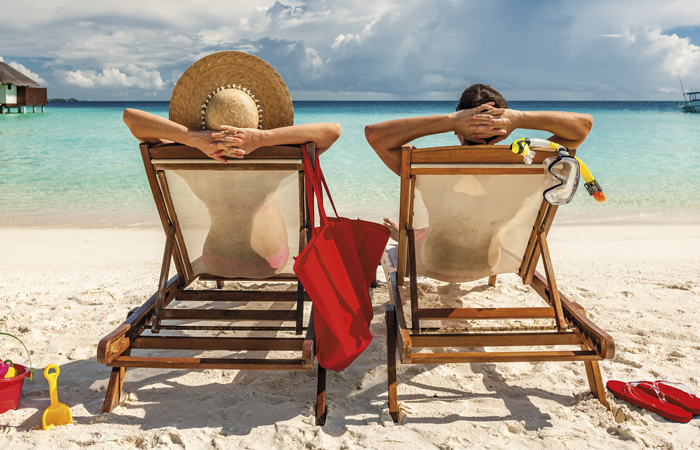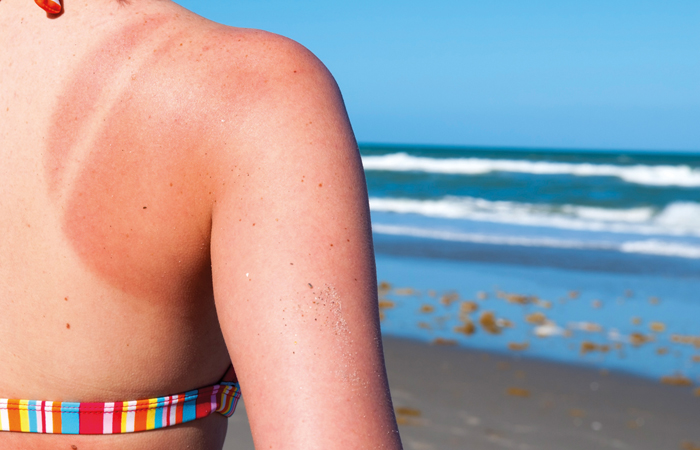Summertime, and the livin' is easy?
In Conditions
Follow this topic
Bookmark
Record learning outcomes
Pharmacy is in the ideal position to help customers deal with the hazards that come with the joys of summer

For many people, the lyrics of Ella Fitzgerald’s famous song certainly ring true, but enjoying the sunshine and getting outdoors and active comes with a number of risks that have the potential to make the livin’ less easy. Pharmacy teams need to be properly equipped to manage first aid situations and help customers showing symptoms of over-indulging in the heat.
The most vulnerable
Customers who are vulnerable may need extra attention during the hot weather. Public Health England has identified categories of vulnerability, which include:
- Old age – especially those over 75 or who are isolated, living alone or in a care home
- Chronic and severe illness – those suffering from heart conditions, diabetes, respiratory conditions, renal conditions, Parkinson’s or mental illnesses. Medicines that can affect renal function, sweat production or electrolyte balance can also make people more vulnerable in the heat
- Inability to adapt behaviour to keep cool – having Alzheimer’s, a disability, or being very young can mean an individual is unable to take steps to mitigate the effects of the heat
- Environmental factors and overexposure – living in a top floor flat, working outside or being homeless will increase someone’s exposure to the heat. During hot weather it may be required to keep in regular contact with any customers who are more vulnerable to the heat to ensure that they are coping well. If hot weather is forecast, encourage customers to take extra precautionary measures, such as checking if extra care is available, ensuring accommodation is well ventilated and making sure that people have the correct provisions, including food and water, to limit the impact of the heat.
Reducing the risk
Warmer conditions can affect even the healthiest of people, especially during a heatwave. It is therefore important to understand the best ways to mitigate the risks and to safely enjoy the sun.
The first step is to advise customers to check the weather forecast and adequately prepare for the conditions.
- Sticking to cold foods, such as salads and fruit with high water content, will help keep the body hydrated and reduce the body’s temperature. Drinking more water and no-added-sugar soft drinks, and avoiding alcohol and caffeinated drinks, will help the body cope with the heat
- Keeping the home well ventilated is important so that it is a safe refuge from the sun and allows the cooler air to circulate, especially in the evenings. Keeping curtains, blinds or shutters closed to keep the direct sunlight out will also help to cool rooms down to a more comfortable level. It’s also important to check that fridges and freezers are working correctly (1-4°C for fridges and below -18°C for freezers)
- Remaining out of direct sunlight during peak hours, between 11am-3pm, is advisable, especially for vulnerable people. Sensible clothing should be worn, with light cotton clothes being best in the heat. A hat is also important to keep direct sunlight off the head and face.

Sun safety
Whether at home or abroad, keeping safe in the sun is paramount. Sunburn can increase the risk of developing skin problems in later life, such as skin ageing and more serious conditions like skin cancer.
Sunburn is caused by overexposure to UV rays, which can damage the skin. Underestimating the strength of the sun is common; the wind and getting the skin wet, such as going in and out of the sea or swimming pool, has a cooling effect so people don’t realise they’re getting burnt.
Obvious symptoms include reddened, warm skin, blistering and often pain in the affected areas. Skin may start to flake and peel after a few days, and will usually fully heal within a week. Appropriate advice is to get out of the sun as soon as possible and remain in the shade or indoors until the skin recovers. It can help to cool the skin by sponging it gently with cold water. Taking a cool bath or shower for no more than 10 minutes is another effective way to ease soreness. Drinking plenty of fluids is also important to cool down and prevent dehydration. If dehydration does occur, oral rehydration sachets can be recommended.
Mild sunburn can be treated with an after-sun lotion that can help to soothe the skin and painkillers such as ibuprofen or paracetamol can be taken to relieve pain. Customers with more serious burns that have blistered or caused skin damage should be referred to the pharmacist or their GP. Customers should be advised to protect their skin from strong sunlight by covering up with suitable clothing, finding shade and regularly applying a high SPF sunscreen.
Remaining out of direct sunlight during peak hours, between 11am-3pm, is advisable
